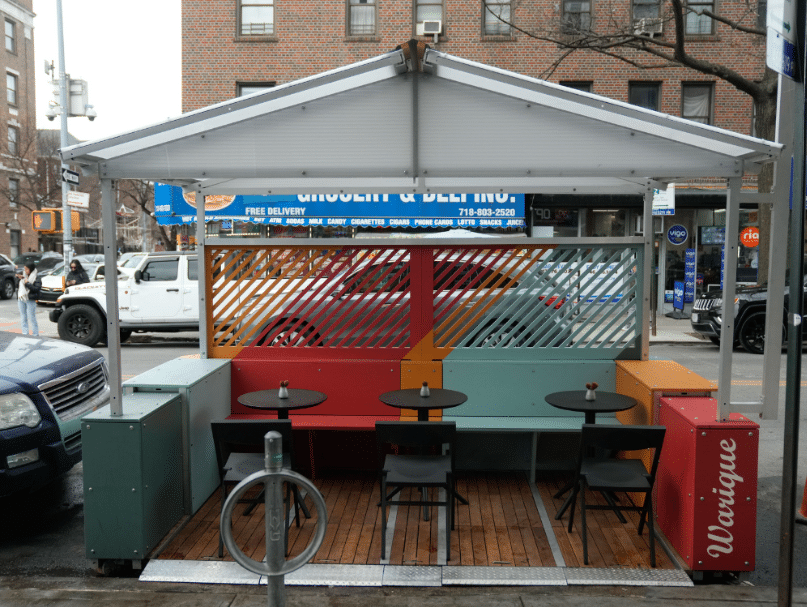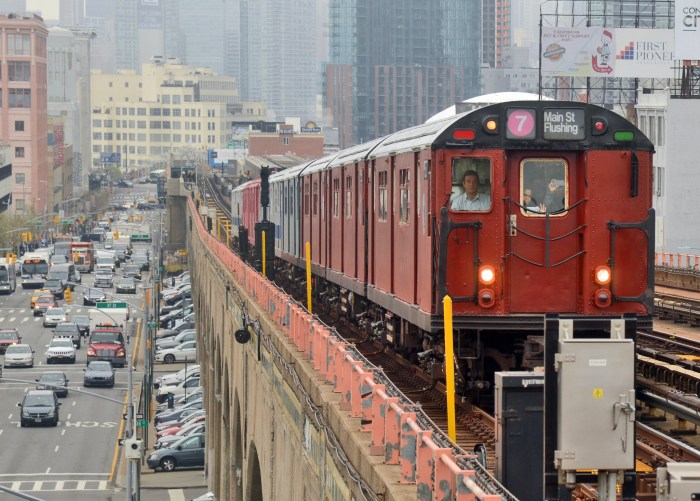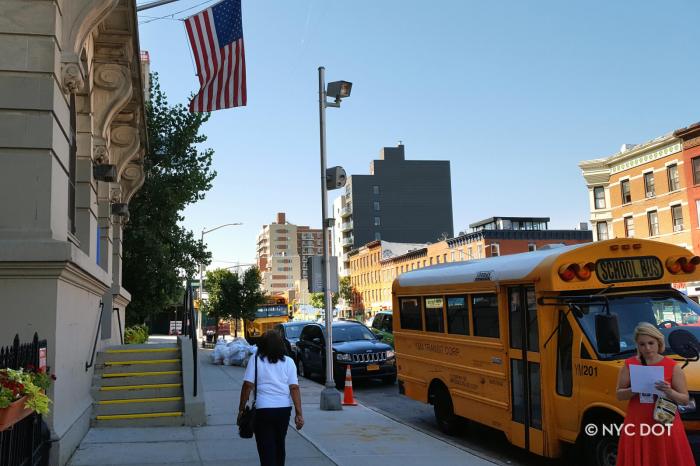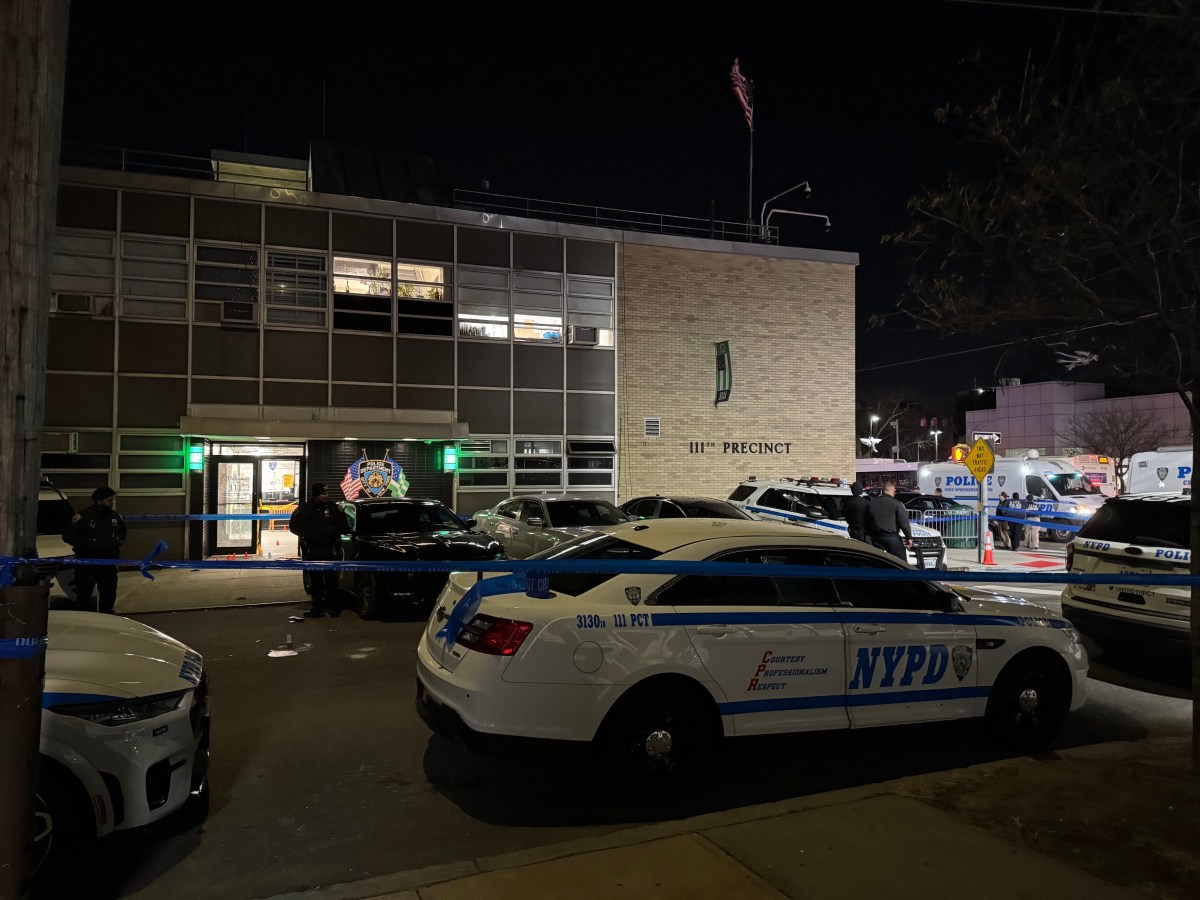Applications are now open for restaurants to join the city’s new, permanent outdoor dining program, Mayor Eric Adams announced Tuesday, as the administration unveiled prototypes for how the new modular, seasonal dining setups will look.
The outdoor dining program which the City Council approved last summer, Dining Out NYC, makes permanent the popular COVID-era program that vastly expanded the scope of al-fresco eating in the Big Apple, but with some major changes.
Sidewalk eateries will be able to operate year-round, but street setups will only be allowed eight months out of the year and must be taken down in the winter to restore parking spots.
Enclosed dining sheds, which can become unsightly when abandoned, are now forbidden; setups must now be open-air and more easily moveable. They also have to be wheelchair-accessible, come equipped with drainage systems, and feature rat-resistant barriers.
“We’ve locked in the best parts of the pandemic program and done away with the worst, and I can’t wait to dine out this summer,” Mayor Adams said in a statement.
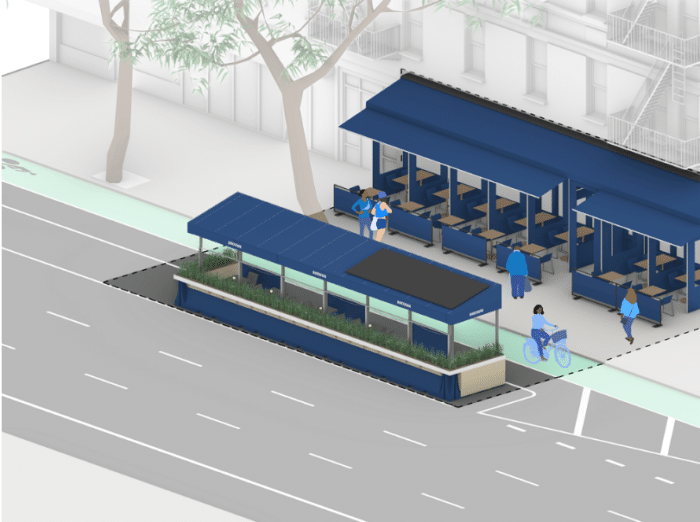
The result will be dining setups that aren’t quite as elaborate, but still protect customers from the elements.
The city contracted with design firms WXY and SITU to develop prototype sheds under the new guidelines, which have been installed at four restaurants in Manhattan and Queens. They cover different potential environs in which a restaurant could set up outdoor dining, including on streets or sidewalks, and at mid-block, the corner, in a “floating parking lane,” or on a steep street.
The new setups are set to be on the street by the summer, Hizzoner says. Those restaurants that were part of the pandemic-era program must apply for the permanent one by Aug. 3, 2024 to continue operating their setup through the approval process.
All outdoor dining setups will be subject to community board review and, if located in a historic district, an additional layer of review from the Landmarks Preservation Commission.
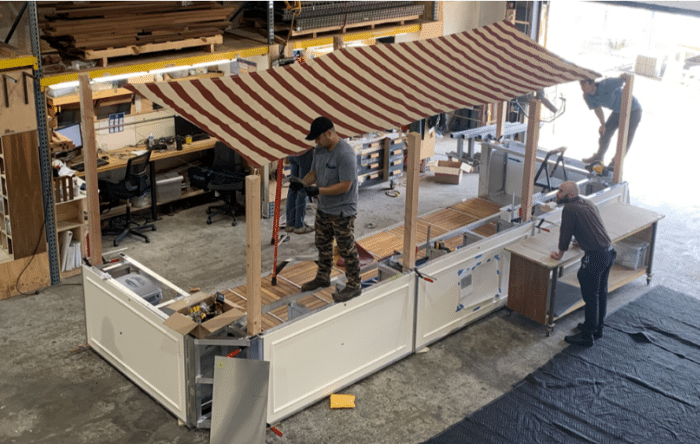
Some restaurateurs have complained that setting up outdoor dining only to take them down every year would make the program prohibitively expensive for small business owners.
Nonetheless, the leader of one of the city’s biggest restaurant trade groups, the NYC Hospitality Alliance, gave an enthusiastic thumbs-up to the program, which passed the City Council last year after years of negotiations between lawmakers, industry reps, and other stakeholders.
“It’s the big day so many people have been anticipating,” said Andrew Rigie. “We commend and congratulate Mayor Adams, the DOT team, and the administration on the launch of the online portal that will allow restaurants to begin submitting applications to participate in the future of alfresco dining.”
Not everyone is pleased. In October, the city was hit with a class-action lawsuit seeking to overturn the permanent program, which is still pending in Manhattan Supreme Court.



